
This is CNBC's live blog tracking developments on the war in Ukraine. See below for the latest updates.
After a series of sham referendums in four Russian-occupied parts of Ukraine, the results are out. Unsurprisingly, they show a resounding majority voted to join Russia. The referendums are widely seen as rigged, as many irregular voting practices have been reported.
Electoral officials went door to door with portable ballot boxes to collect votes from residents living in the occupied Kherson and Zaporizhzhia regions in the south, and self-proclaimed, pro-Russian "republics" in Donetsk and Luhansk, with polling stations open only yesterday, the last day of voting.
Get San Diego local news, weather forecasts, sports and lifestyle stories to your inbox. Sign up for NBC San Diego newsletters.
See our blog below for the results.
It's widely expected that Russian President Vladimir Putin will announce Friday that the occupied regions are being annexed and becoming a part of the Russian Federation. There are widespread fears that Moscow could resort to nuclear weapons to "defend" what it will claim is its territory.
Elsewhere, European officials continue to investigate unexplained leaks affecting both the Nord Stream 1 and 2 pipelines that carry natural gas from Russia to Europe via the Baltic Sea.
Money Report
Both Europe and Russia have both said sabotage cannot be ruled out as the cause of the damage, but the finger of blame is being pointed squarely at Moscow — which has yet to respond directly to the accusations.
Meanwhile, U.S. President Joe Biden approved $1.1 billion more in military aid for Ukraine.
Four vessels to leave Ukraine carrying more than 110,000 metric tons of agricultural products
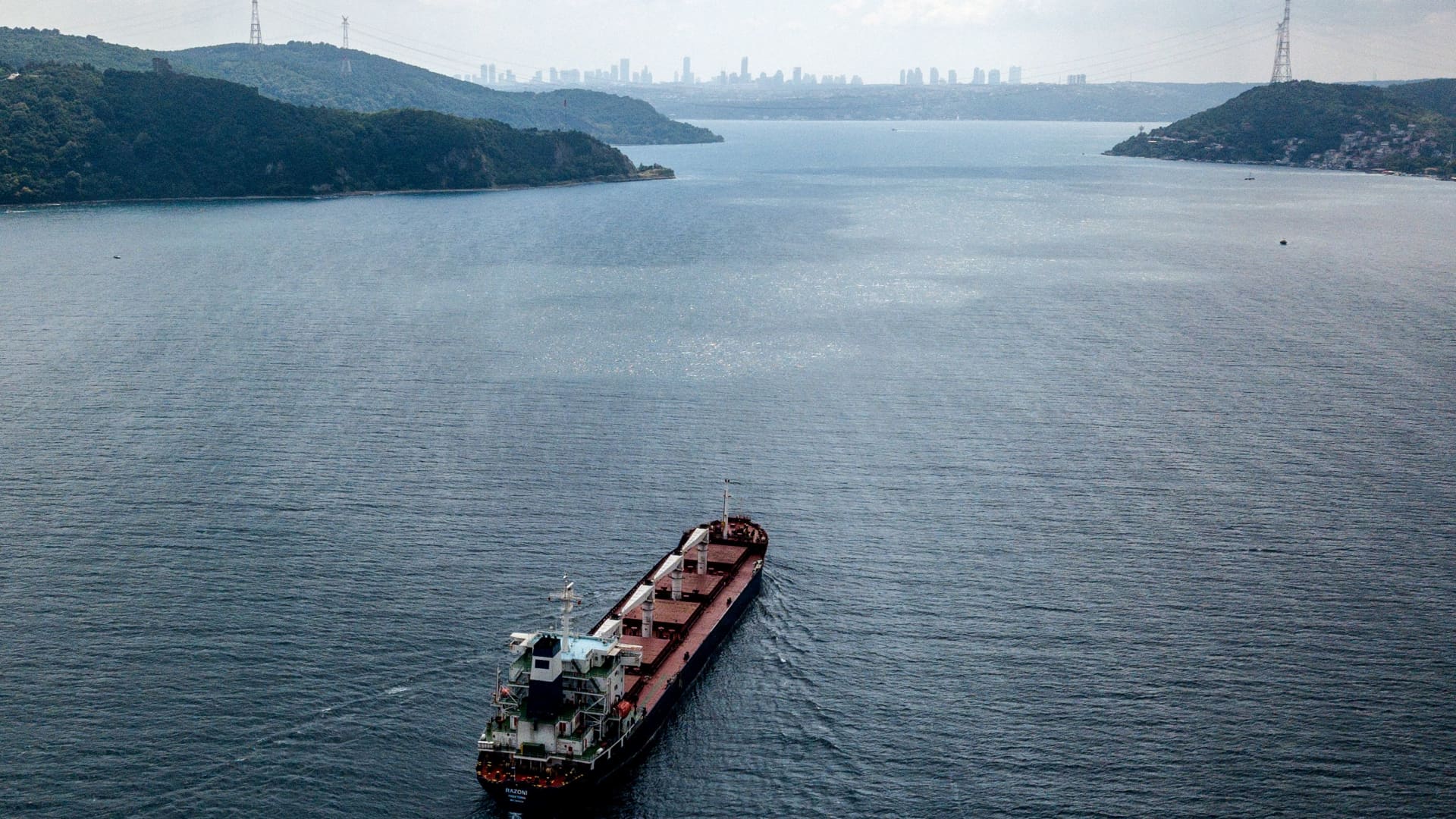
The organization overseeing the export of agricultural products from Ukraine said it has approved four vessels to leave the besieged country.
The Black Sea Grain Initiative, an initiative of Ukraine, Russia, the United Nations and Turkey, said the vessels are carrying a total of 114,925 metric tons of grain and other crops.
One ship carrying wheat is destined for Bangladesh. Another ship will depart from Ukraine's Yuzhny-Pivdennyi port for Libya and is carrying corn. Two ships carrying corn and sunflower meal will sail to Romania and Italy from Ukraine's port of Chornomorsk.
Read more about the Black Sea Grain Initiative here.
— Amanda Macias
Two NATO allies still have to approve Sweden and Finland’s entry into the alliance
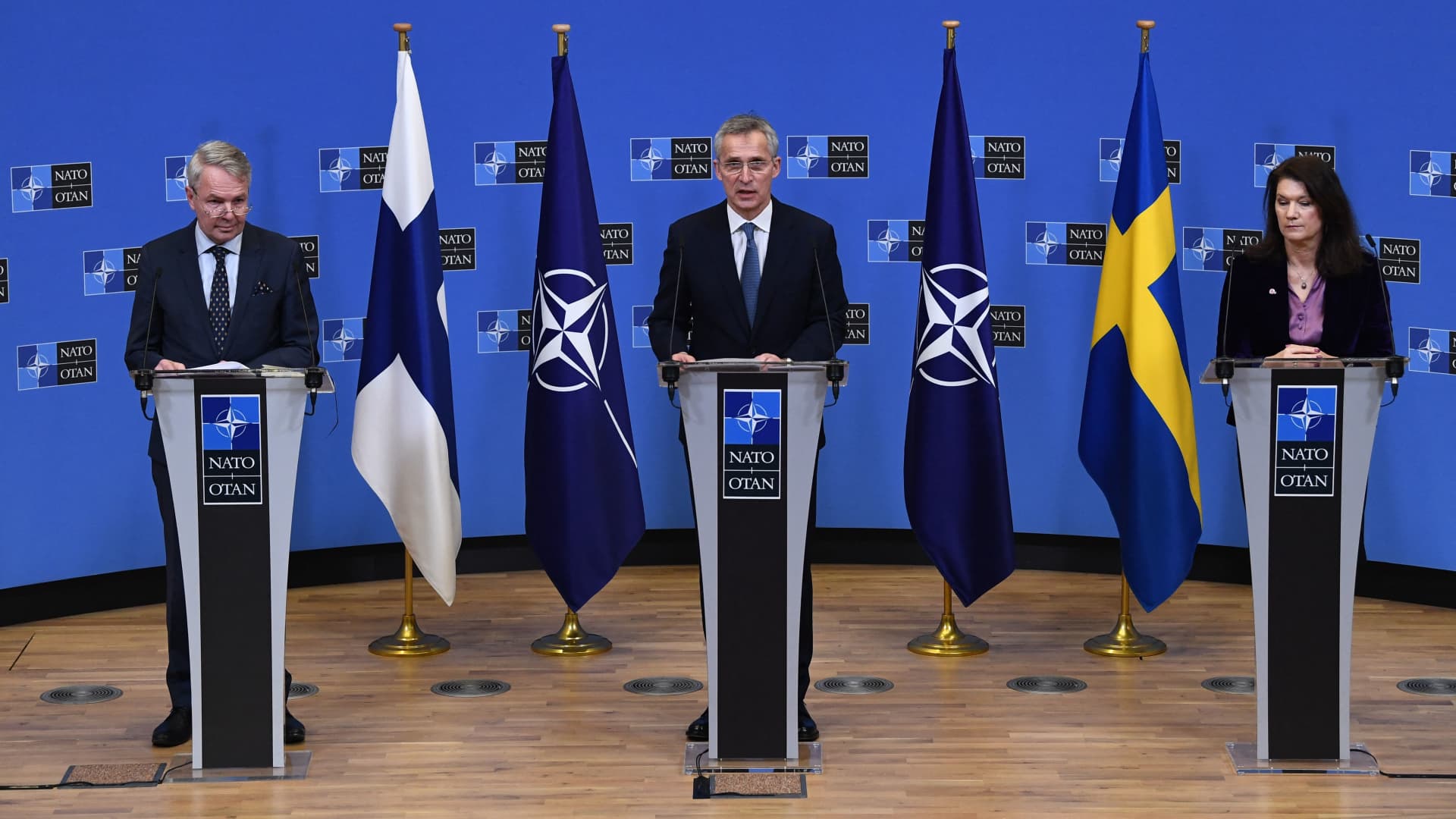
Two NATO member countries have yet to sign ratification protocols for Finland and Sweden to join the military alliance.
Out of NATO's 30 member countries, Hungary and Turkey are the last holdouts to grant Sweden and Finland membership. Slovakia was the latest NATO ally to sign ratification documents on Sept. 27.
In May, both nations began the formal process of applying to NATO as Russia's war in Ukraine raged. All 30 members of the alliance have to ratify the countries' entry into the group.
Last month, U.S. President Joe Biden signed ratification documents following a 95-1 Senate vote to bring Finland and Sweden into NATO.
— Amanda Macias
Zelenskyy speaks with British Prime Minister Liz Truss on Russian referendums and more aid for Ukraine
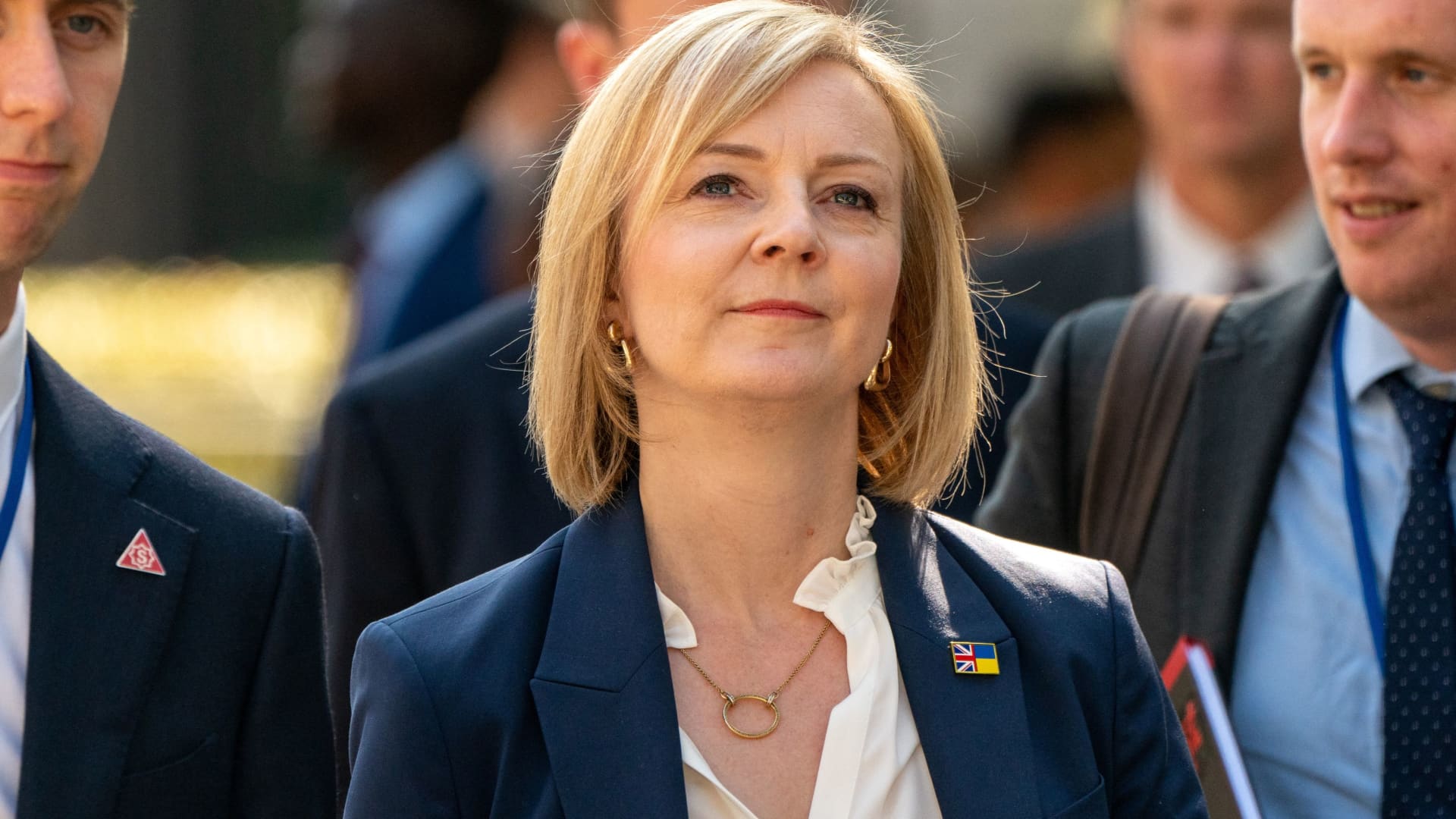
Ukrainian President Volodymyr Zelenskyy said he spoke with British Prime Minister Liz Truss about the war in his country.
"The UK has always been among the leaders in supporting Ukraine. We expect London's leadership in reaction to Russian sham referenda as well," Zelenskyy wrote in a tweet. "Defense and financial aid to Ukraine must be enhanced in response," he added.
The British government confirmed the phone call between Truss and Zelenskyy in a separate release.
"The prime minister made clear that the UK would never recognize Russian attempts to annex sovereign territory. She reiterated that Ukraine could depend on the UK's support until president Putin was defeated," according to the readout of the call.
Truss thanked Zelenksyy for his work in securing the release of five British nationals held prisoner by Russian forces in eastern Ukraine.
"The leaders also discussed how the UK and Ukraine could work together to secure Ukraine's gas supplies in the long term," according to the readout.
— Amanda Macias
Biden approves another $1.1 billion in military aid for Ukraine
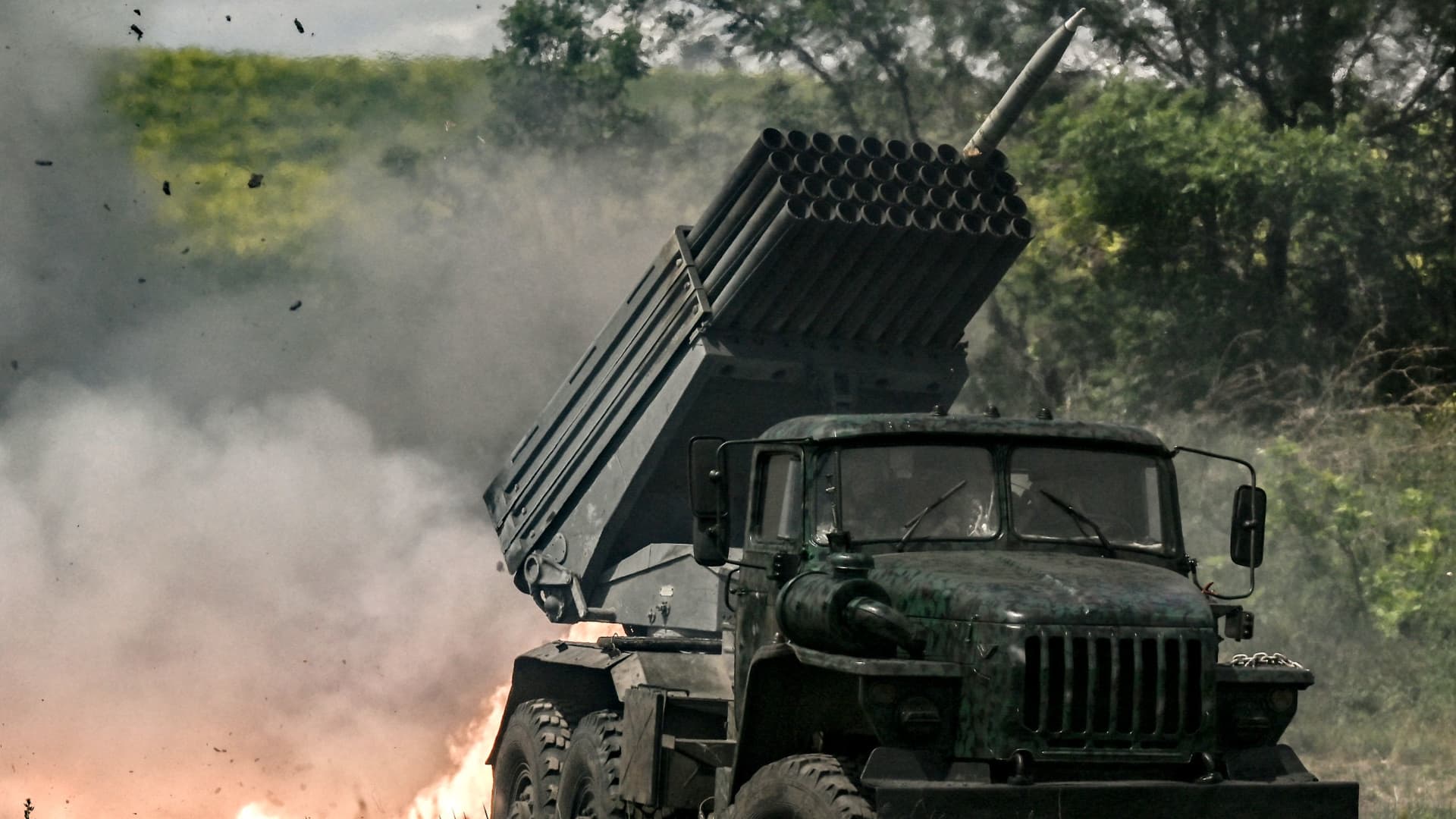
The Biden administration announced $1.1 billion in additional military aid for Ukraine, bringing U.S. commitment to more than $16.2 billion since Russia's invasion in late February.
The announcement of the upcoming aid package, the 22nd such installment, follows referendums held in four Russian-occupied regions of Ukraine.
Earlier this week, the White House said that the U.S. would never acknowledge the results of the "sham referendum" and would continue providing Kyiv with military and humanitarian support.
— Amanda Macias
U.S. ambassador to the UN will propose resolution to condemn Russia's 'sham referenda'

The U.S. ambassador to the United Nations said the Biden administration would put forward a resolution that condemns Russia's "sham referenda" and calls on all states to not recognize any altered status of Ukraine.
"We are doing this because, as President Biden said last week, if nations can pursue their imperial ambitions without consequences, then we put at risk everything that this institution stands for," Linda Thomas-Greenfield told reporters at the United Nations.
"We know how one country will feel about this resolution, but we are hoping to see the rest of the council stand strong in refusing to accept the redrawing of borders through the use of force by any country," she said.
Voting in the referendums, which Western countries say are illegitimate, have been taking place in Donetsk and Luhansk in east Ukraine, and Zaporizhzhia and Kherson in the south. The Kremlin maintains that the vote is legitimate.
— Amanda Macias
Germany will 'never recognize the results of the sham referendum,' chancellor says
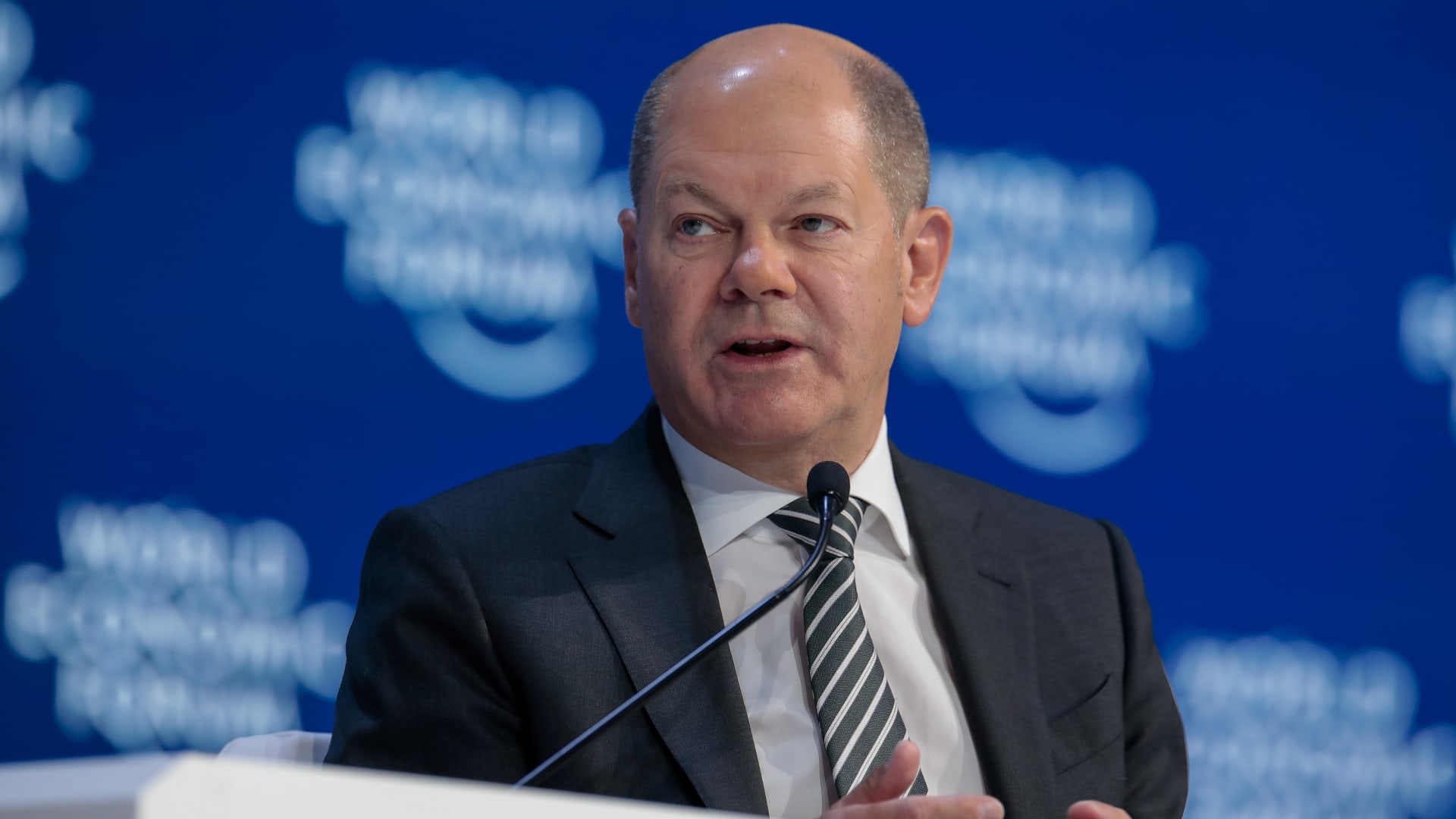
German Chancellor Olaf Scholz spoke on the phone with the Ukrainian President Volodmyr Zelenskyy about Russia's war and the recently held referendums in four Russian-occupied regions of Ukraine.
"The chancellor stressed that Germany would not stop providing concrete political, financial and humanitarian support to Ukraine, as well as in the defense of its sovereignty and territorial integrity, including arms supplies," according to a German government readout of the call.
Scholz also said that Germany "would never recognize the results of the sham referendum" in the Ukrainian regions of Luhansk, Donetsk, Kherson and Zaporizhzhia.
The two leaders agreed to stay in close contact.
— Amanda Macias
One-way economy flights from Moscow to Dubai are nearly $5,000 as Russians flee mobilization

One-way economy flights from Moscow to Dubai are going for as much as $5,000 and many have completely sold out in the days following Russian President Vladimir Putin's declaration of a "partial" mobilization of 300,000 reservists to fight in Ukraine.
The roughly five-hour flight cost around $350 one week before the announcement delivered on Sept. 21.
Current prices on UAE airlines Emirates and FlyDubai for the month between Sept. 28 and Oct. 26 are going for between $2,577 and $4,773 for a one-way economy ticket, according to those airlines' websites. The cheaper of those prices is more than 2½ times the average monthly Russian salary of $965, according to Statista.com.
"Everyone is leaving. So many people I know," one Russian national living in Dubai, who spoke anonymously due to concerns for her safety, told CNBC.
— Natasha Turak
NATO chief galvanizes allies to offer more support to Ukraine
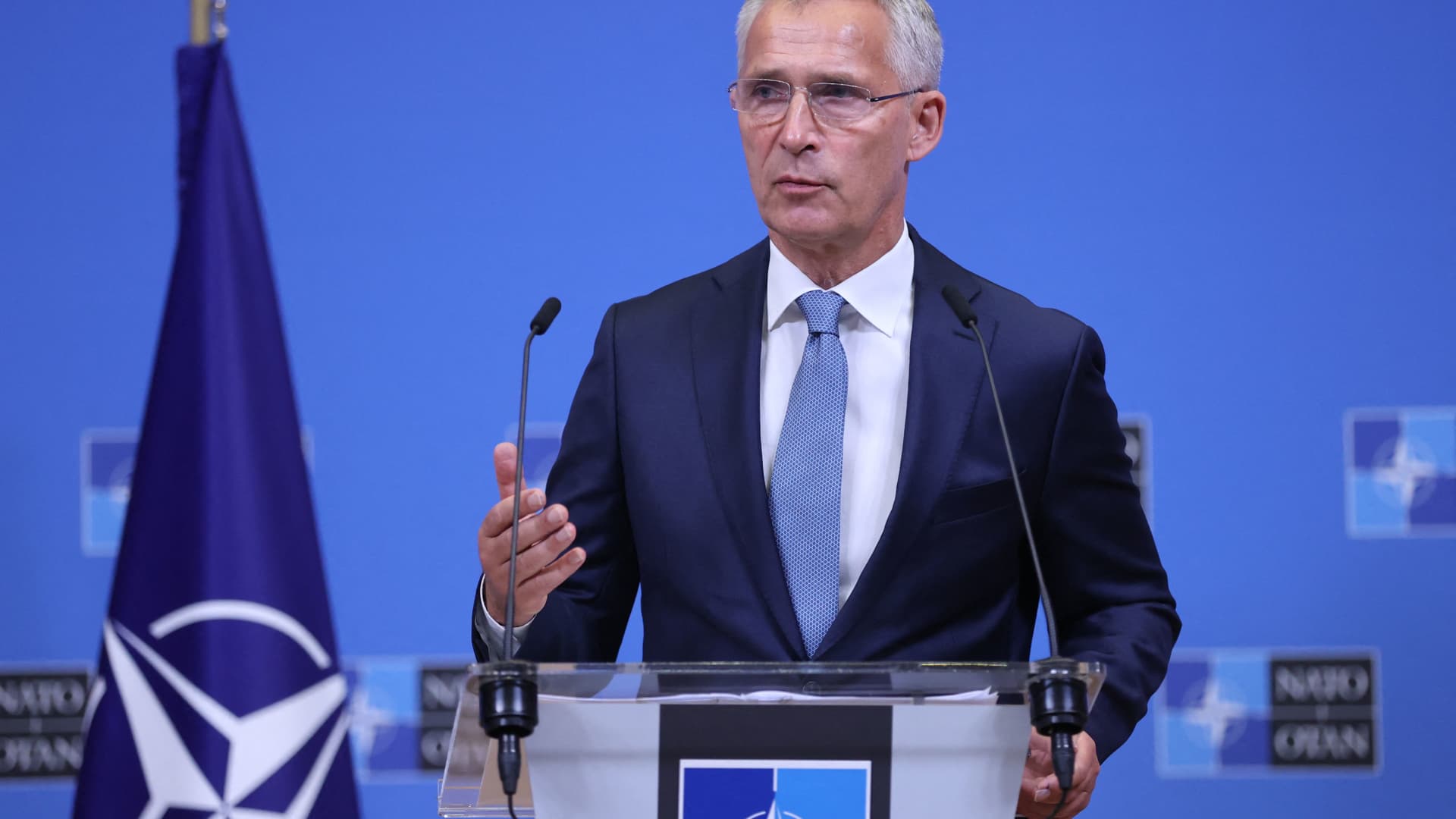
NATO Secretary-General Jens Stoltenberg galvanized allies to allocate more money for defense as Ukraine fights back Russia's invasion.
"Wars are unpredictable, so no one can tell how long this will last," Stoltenberg said in his opening remarks before the European Parliament.
"This could continue for the long haul and we need to be prepared to provide support," he said, adding "the reality is that we don't have any choice."
Stoltenberg also said that Ukraine's counteroffensive would not have been possible, in part, if not for the substantial support from NATO, the European Union and the United States.
— Amanda Macias
U.S. and Europe are running out of weapons to send to Ukraine
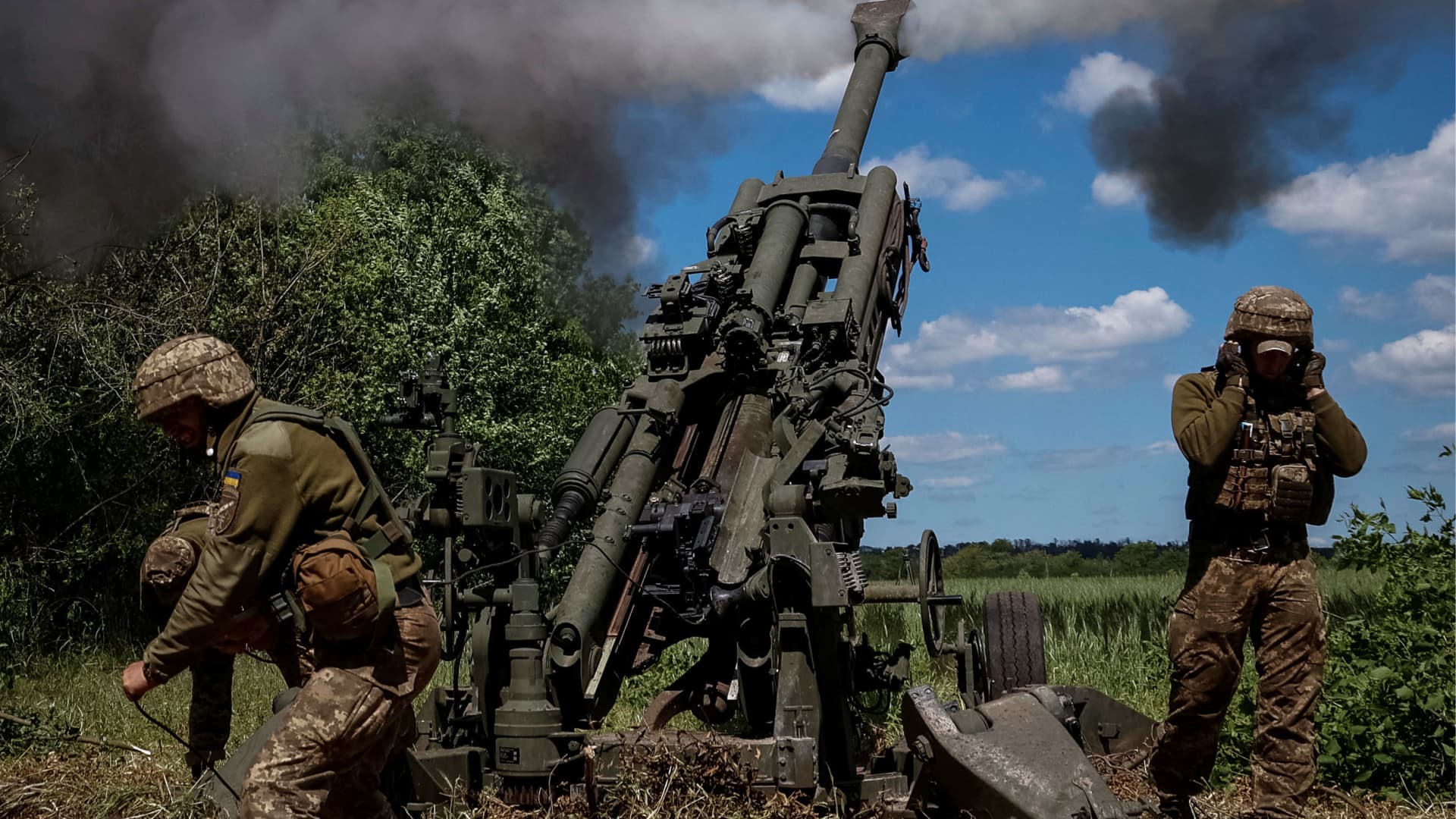
Western officials and military analysts are increasingly concerned about diminishing weapons stocks curbing their ability to supply Ukraine in its fight against Russia.
"I'm greatly concerned. Unless we have new production, which takes months to ramp up, we're not going to have the ability to supply the Ukrainians," Dave Des Roches, a senior military fellow at the U.S. National Defense University, told CNBC.
NATO Secretary-General Jens Stoltenberg held a special meeting of the alliance's arms directors on Tuesday to discuss ways to refill member nations' weapons stockpiles.
Weapons Ukraine relies on that are now classified as "limited" in the U.S. inventory include 155 mm howitzers, HIMARS launchers, Javelin missiles, Stinger missiles, the M777 Howitzer and 155 mm ammunition.
— Natasha Turak
Satellite imagery spots Nord Stream pipeline leak in the Baltic Sea
Satellite imagery from U.S. company Planet captured the disturbed surface of the Baltic Sea following Tuesday's leak in the Nord Stream gas pipeline.

The pipeline rupture is about 13 nautical miles away from Bornholm Island, Denmark, the company noted.
– Michael Sheetz
Ukraine's foreign minister calls on countries who have remained neutral during Russia's war to 'take a stand'
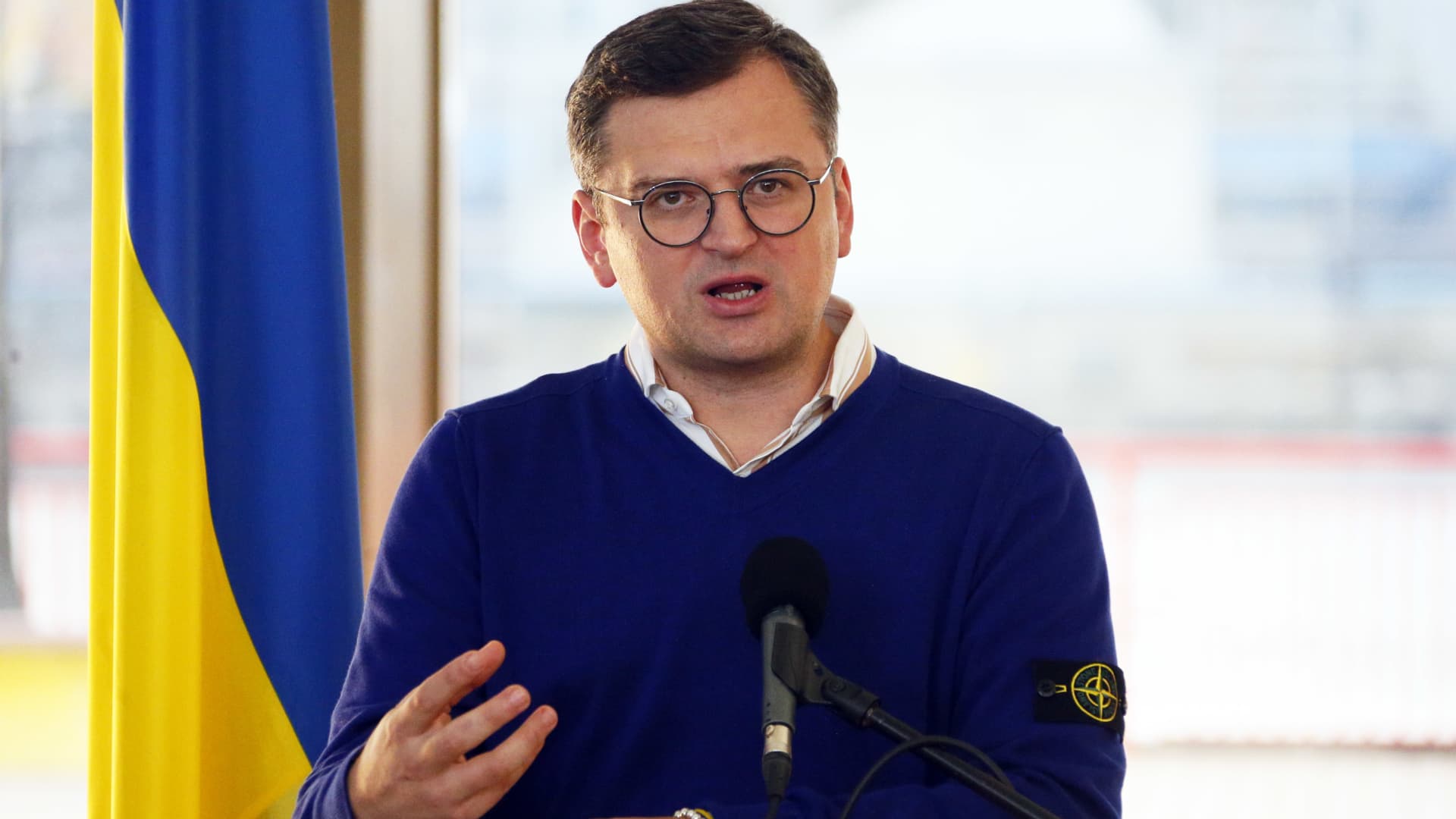
Ukrainian Foreign Minster Dmytro Kuleba called on countries who have taken a neutral stance on Russia's war in Ukraine to "take a stand."
"Neutral countries will not be able to sit back: they need to take a stand. The stand of justice, the stand of international law and the protection of security and peace in the whole world," Kuleba said during a press conference.
"I want to appeal to all the countries that recently insisted on the need for negotiations and offered their mediation services: Russia does not want any negotiations, stop playing this game," Kuleba, Ukraine's top diplomat, added.
He called on countries to continue supporting Ukraine with military and humanitarian aid
— Amanda Macias
U.S. Embassy in Russia tells U.S. citizens to leave the country as soon as possible

The U.S. Embassy in Russia has issued a security alert for American citizens in the country, telling them to leave immediately if they can.
The embassy issued a statement Tuesday in which it said "U.S. citizens should not travel to Russia and those residing or travelling in Russia should depart Russia immediately while limited commercial travel options remain."
The warning comes after the Russian government began a military mobilization of its citizens last week, with several hundred thousand men being called up and sent to Ukraine to fight.
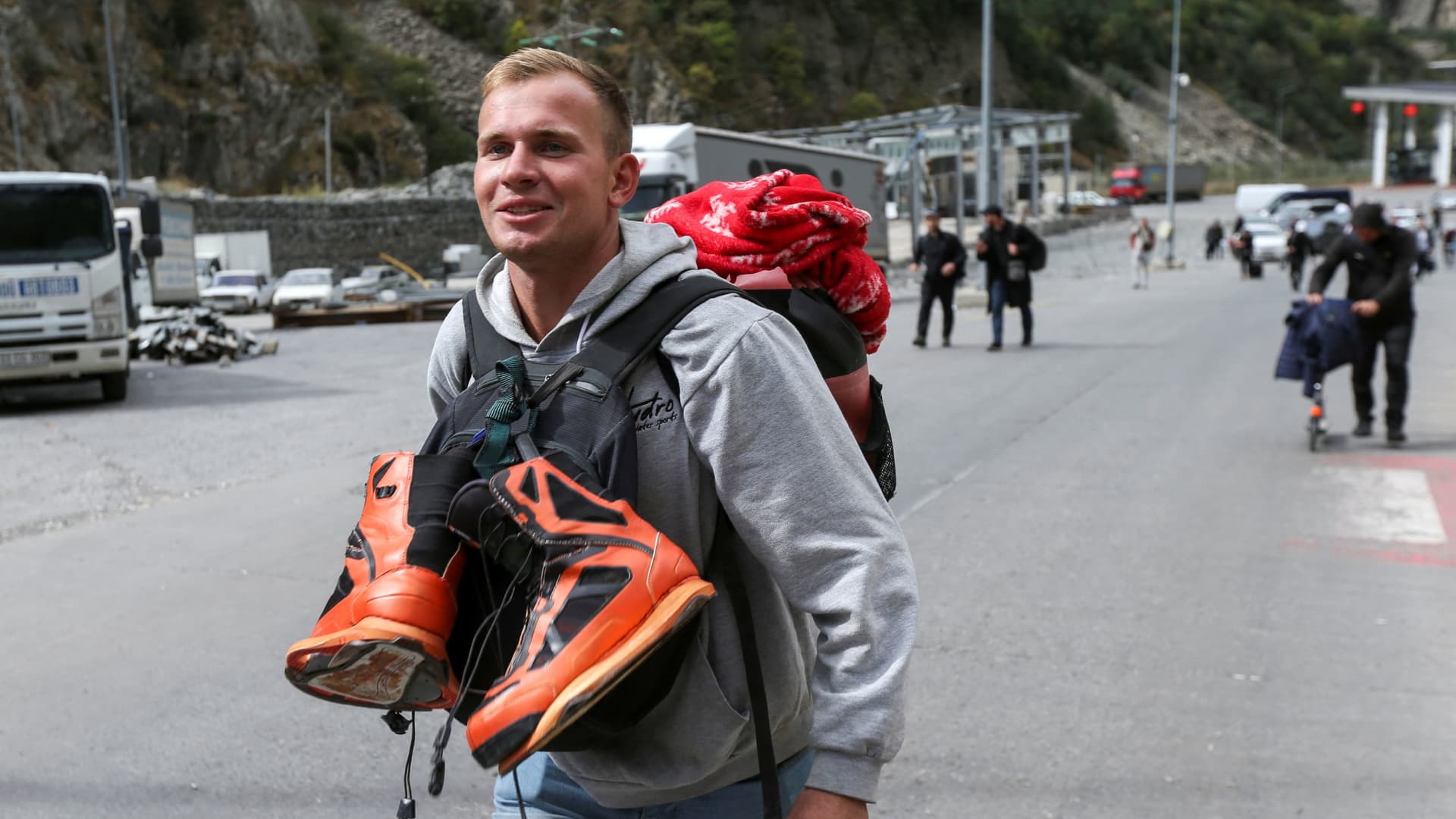
The U.S. Embassy warned Tuesday that "Russia may refuse to acknowledge dual nationals' U.S. citizenship, deny their access to U.S. consular assistance, prevent their departure from Russia, and conscript dual nationals for military service" and that anyone wishing to leave Russia should do so as soon as possible.
"Commercial flight options are extremely limited at present and are often unavailable on short notice. Overland routes by car and bus are still open. If you wish to depart Russia, you should make independent arrangements as soon as possible."
It added that the U.S. Embassy "has severe limitations on its ability to assist U.S. citizens, and conditions, including transportation options, may suddenly become even more limited."
It also warned U.S. citizens that the right to peaceful assembly and freedom of expression are not guaranteed in Russia and that they should "avoid all political or social protests and do not photograph security personnel at these events. Russian authorities have arrested U.S. citizens who have participated in demonstrations."
The embassy provided a link with more information on travel out of Russia here.
— Holly Ellyatt
Correction: The U.S. Embassy issued its statement on Tuesday. An earlier version misstated the day.
EU pledges robust response to suspected sabotage of Nord Stream gas pipelines
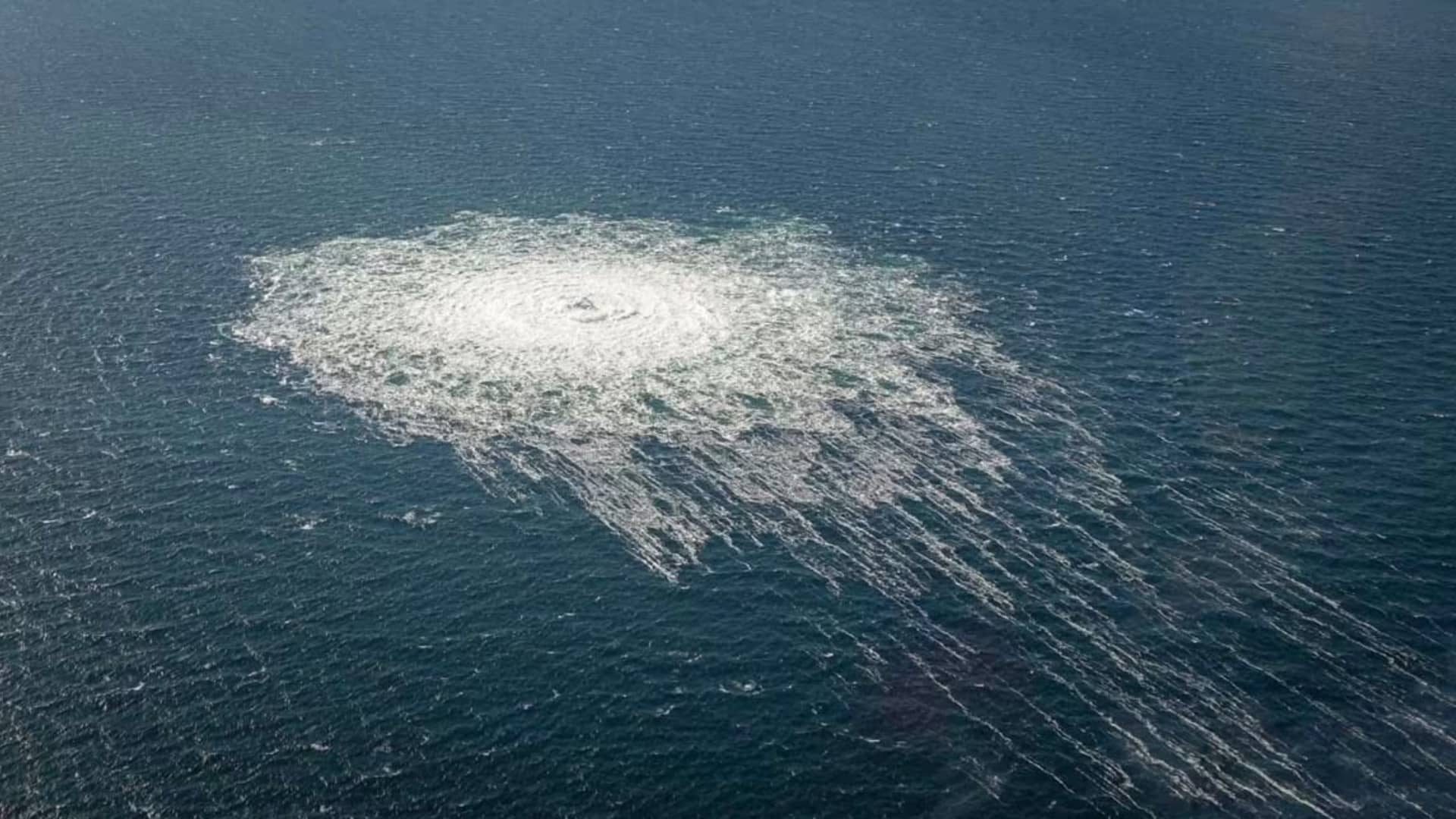
The European Union pledged to deliver a "robust and united response" to a suspected act of sabotage after mystery gas leaks hit two underwater Russian gas pipelines.
"All available information indicates those leaks are the result of a deliberate act," EU foreign policy chief Josep Borrell said in a statement.
"We will support any investigation aimed at getting full clarity on what happened and why, and will take further steps to increase our resilience in energy security. Any deliberate disruption of European energy infrastructure is utterly unacceptable and will be met with a robust and united response," he added.
— Sam Meredith
Kremlin says claims it was behind Nord Stream leaks are 'stupid'
The Kremlin has responded to allegations that it was responsible for damage and leaks to both the Nord Stream 1 and 2 gas pipelines in the last few days by rebuffing the accusations and calling them "stupid."
European authorities are investigating possible sabotage to the Nord Stream gas pipelines, a bone of contention between Europe and Russia as the war in Ukraine continues, after they started to leak gas in the Baltic Sea earlier this week.
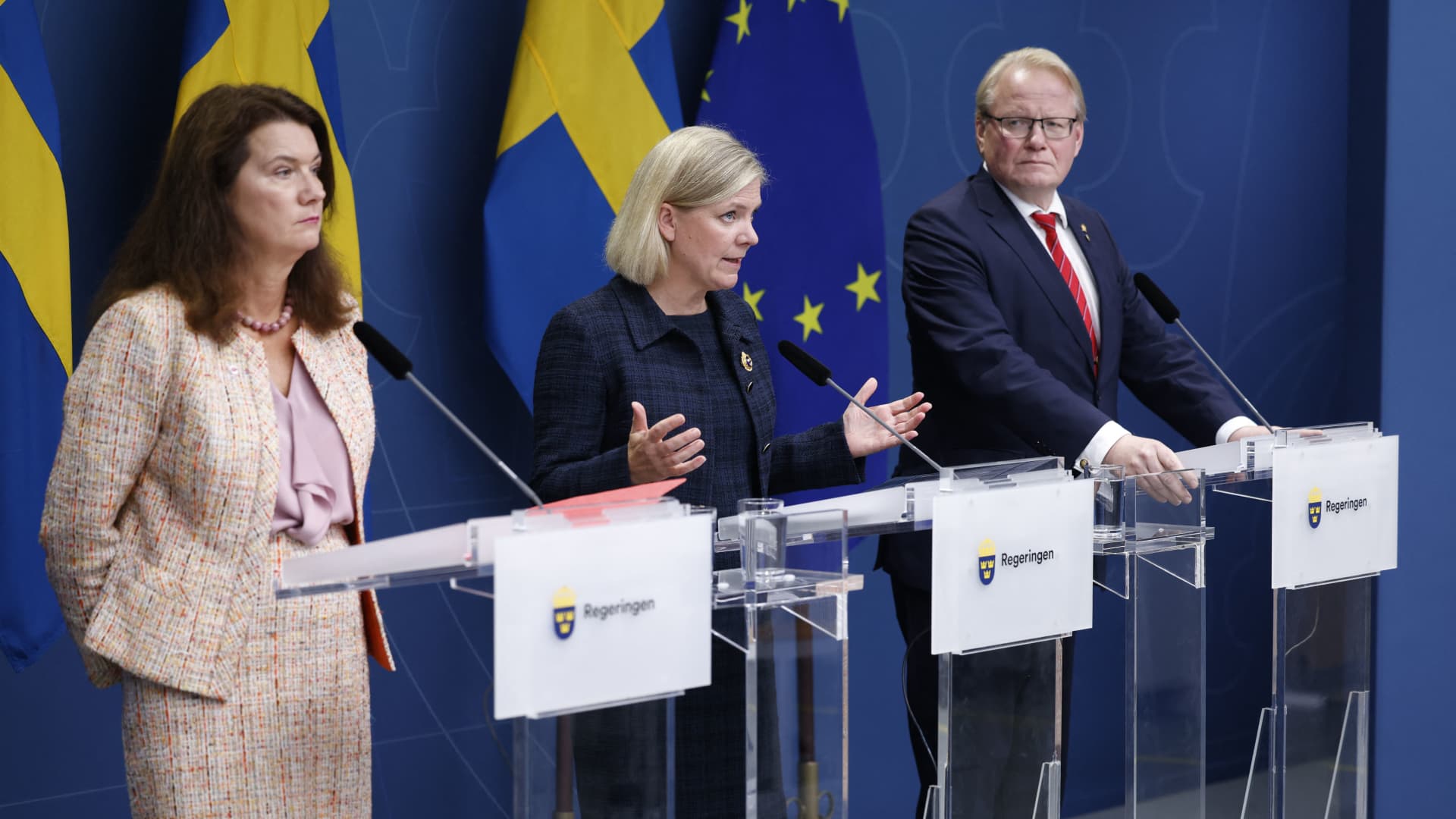
Kremlin spokesman Dmitry Peskov told a daily conference call with reporters that the incident needed to be investigated and the timings for repair of the damaged pipelines were not clear, Reuters reported.
Then, when asked about claims Russia might be behind the possible attack, Peskov said: "That's quite predictable and also predictably stupid."
"This is a big problem for us because, firstly, both lines of Nord Stream 2 are filled with gas - the entire system is ready to pump gas and the gas is very expensive ... Now the gas is flying off into the air."
"Are we interested in that? No, we are not, we have lost a route for gas supplies to Europe," Peskov said.
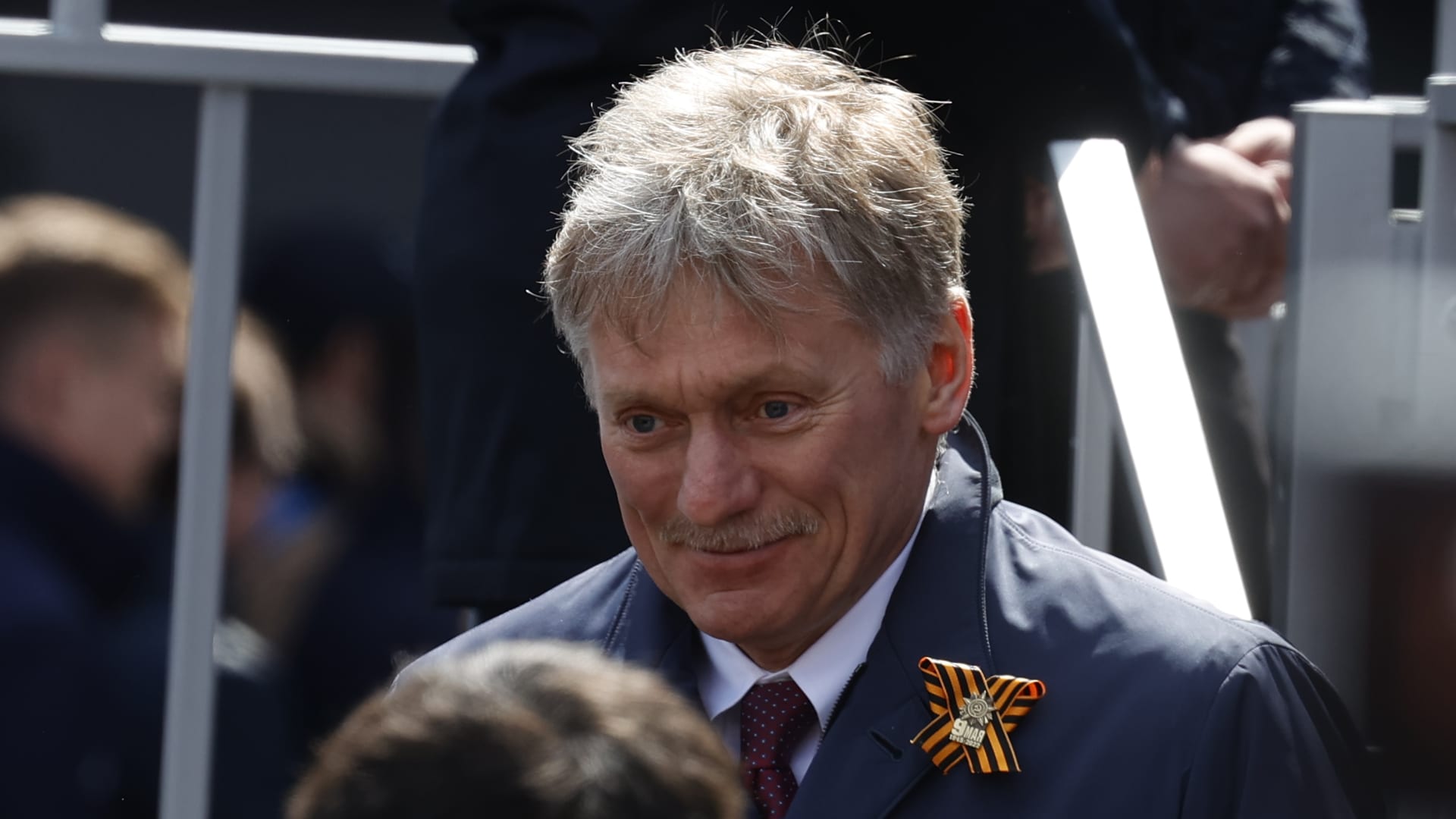
Russia's foreign ministry spokeswoman Maria Zakharova appeared to suggest on Telegram that the U.S. could have been behind the sabotage, a claim that Peskov appeared to allude to when speaking to reporters Wednesday.
"We see the huge profits of the U.S. suppliers of liquefied natural gas, who increased their supplies many-fold to the European continent," Peskov said. "They are very, very interested in further receiving their super, super profits."
— Holly Ellyatt
Newly mobilized Russian soldiers start to arrive in Ukraine, army says
Newly-mobilized Russian soldiers have started to arrive in Ukraine according to the General Staff of the Armed Forces of Ukraine in its latest operational update posted on Facebook.
Many of the soldiers that have been mobilized in President Putin's call-up, made last week and aimed at sending around 300,000 reservists to fight in the war, are poorly trained, if at all, and many have reportedly been given just a uniform and arms and no other equipment.
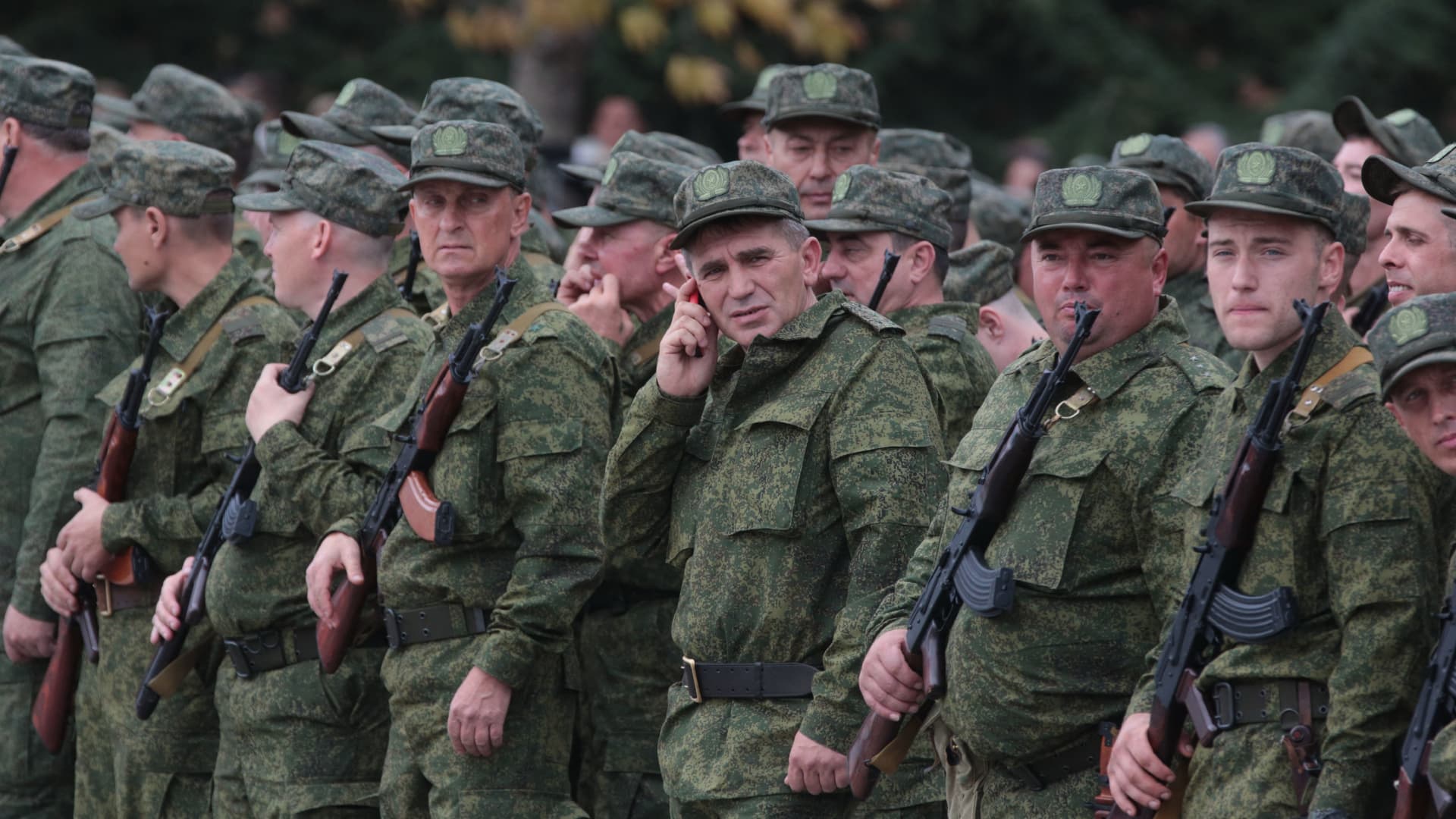
Ukraine's armed forces said that several Russian units in Ukraine had been replenished with new troops and that people with criminal convictions had also arrived to bolster Russia's manpower in Ukraine.
CNBC was unable to immediately verify the report although social media content in recent days has shown videos of reservists bidding farewell to family before being sent to Ukraine on trains and buses.
— Holly Ellyatt
Fake referendums set the stage for annexation, and immense danger for Ukraine
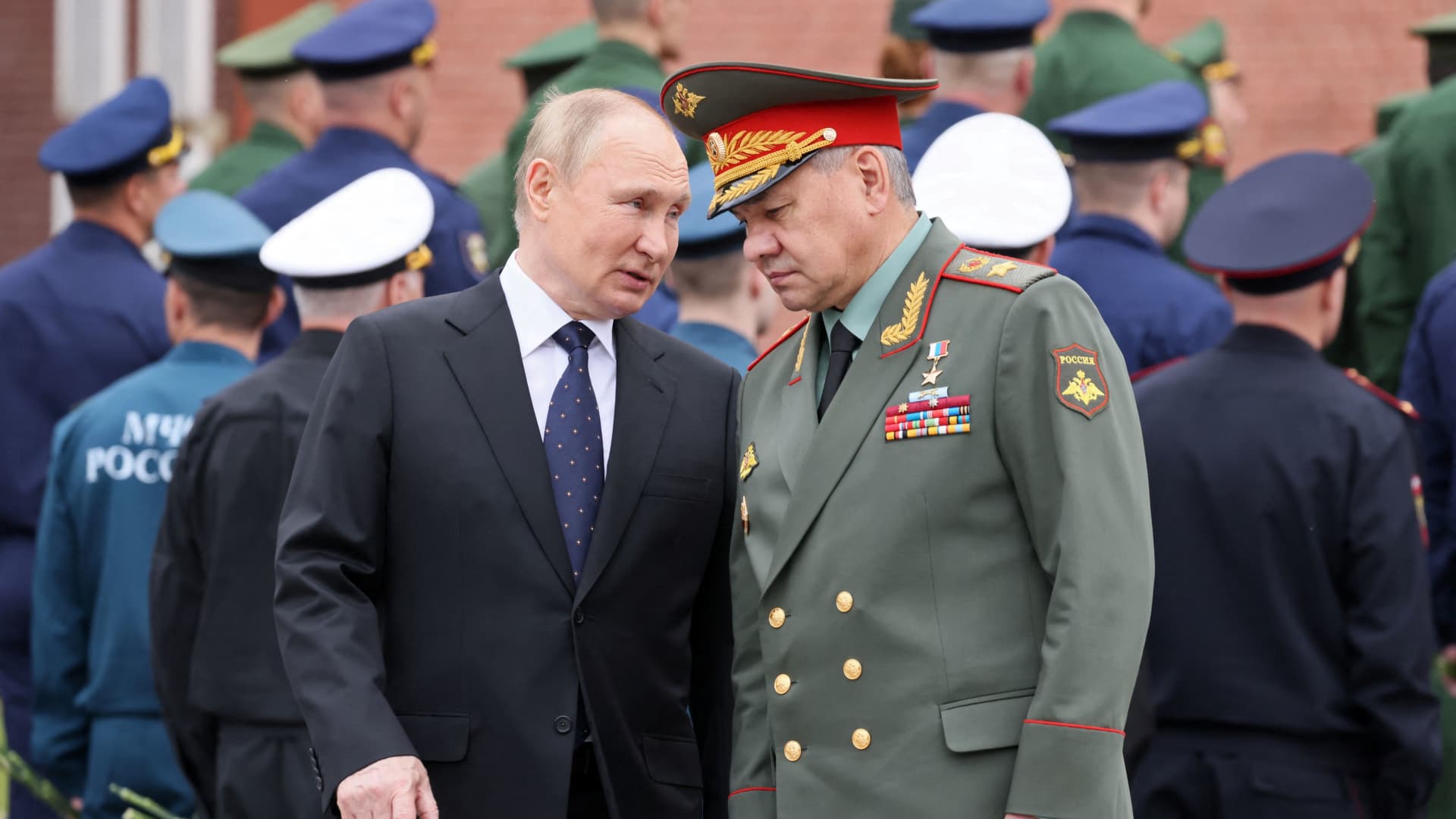
The results from a series of so-called referendums that have taken place in occupied parts of Ukraine —which predictably show a resounding majority voting to join Russia — set the stage for Moscow to announce their annexation in the coming days.
That, analysts say, could mark a dangerous point in the war for Ukraine with the possibility that Russia could turn to unconventional weapons, even nuclear weapons, to "defend" what it will then say is its territory and citizens.
"As for the risk of Russia using these votes and subsequent annexation of those territories as a pretext for nuclear strikes — we are conscious of this risk, we understand that it is real," Yuriy Sak, an advisor to Ukraine's Defense Minister Oleksii Reznikov, told CNBC Wednesday.
Moscow's mobilization won't resolve Russia's problems in the war, analyst says
Russia's partial military mobilization, which was announced by President Putin last week and sees around 300,00 reservists called-up to fight in Ukraine, will not resolve the country's challenges in the war, an analyst said Wednesday.
"Mobilisation will not solve three big problems for the Russian army: poor training, low morale, and issues with logistics and supply," Mario Bikarski, Russia & CIS analyst at the Economist Intelligence Unit said Wednesday.
"The partial mobilisation has proved unpopular particularly in disproportionately affected regions. Dagestan was the federal subject with the highest number of lost soldiers according to various estimates and the one that is now seeing some of the most intense protests," he noted.
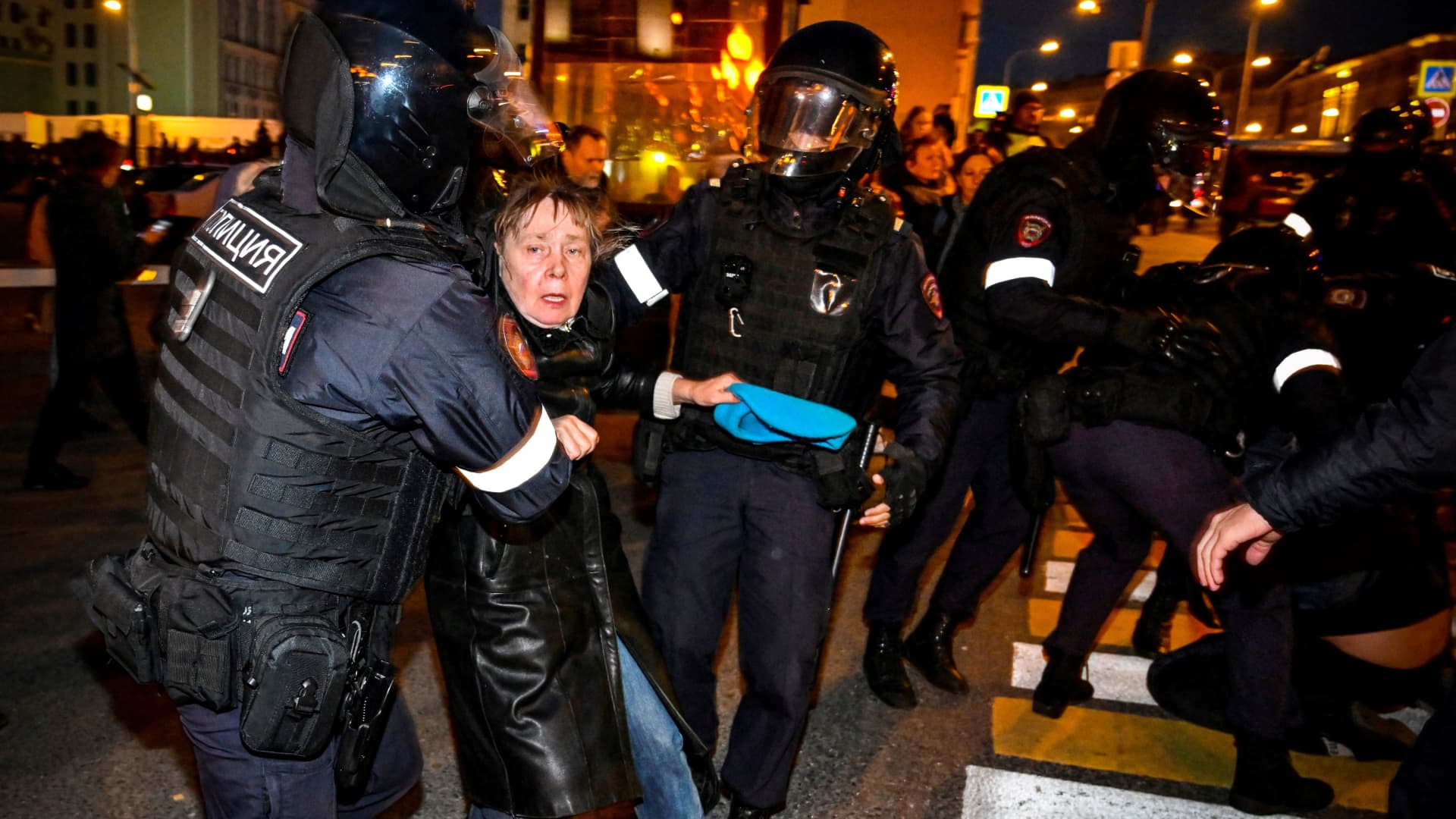
"The mobilisation could exacerbate economic difficulties in impoverished regions of the country as it shrinks the workforce. It could also create a sense of racial injustice among marginalised ethnic minorities. A violent crackdown by the authorities will increase public grievances and instances of violent protests will continue," he added.
While the Kremlin has sufficient capacity to contain protests, and we have seen a brutal crackdown on anti-mobilization protests, a violent response from peripheral communities could continue, Bikarski said.
"Georgia and Kazakhstan will remain the countries with the biggest concentration of fleeing Russians. They are likely to experience a spike in accommodation prices as well as prices for certain services. It could also cause unease within the local population and public dissatisfaction with governments' responses."
— Holly Ellyatt
Russian government regime at its 'shakiest,' says analyst
The current Russian government regime is the "shakiest we've seen," said John Herbst, director of the Eurasia Center at the Atlantic Council.
Herbst told CNBC's Squawk Box that Russian President Vladimir Putin's call for a conscription has led to a "huge problem" demonstrating that Russians do not want to fight in Ukraine.
Putin announced a partial military mobilization in Russia last week, a move that triggered a wave of protests and mass arrests.
According to the director, even senior officials who are supportive of Putin are saying that his decision is a "disaster." However, he predicts that Putin "is not going to go anytime soon."
— Lee Ying Shan
Putin could look to turn the tide in the Ukraine war after sham referendums
CNBC's Ted Kemp discusses the Russian-run "referendums" happening in four regions of Ukraine, and says President Vladimir Putin could use them to claim that Ukraine — instead of his invading Russian army — is the aggressor the war.
The results are out for four so-called referendums in occupied parts of Ukraine
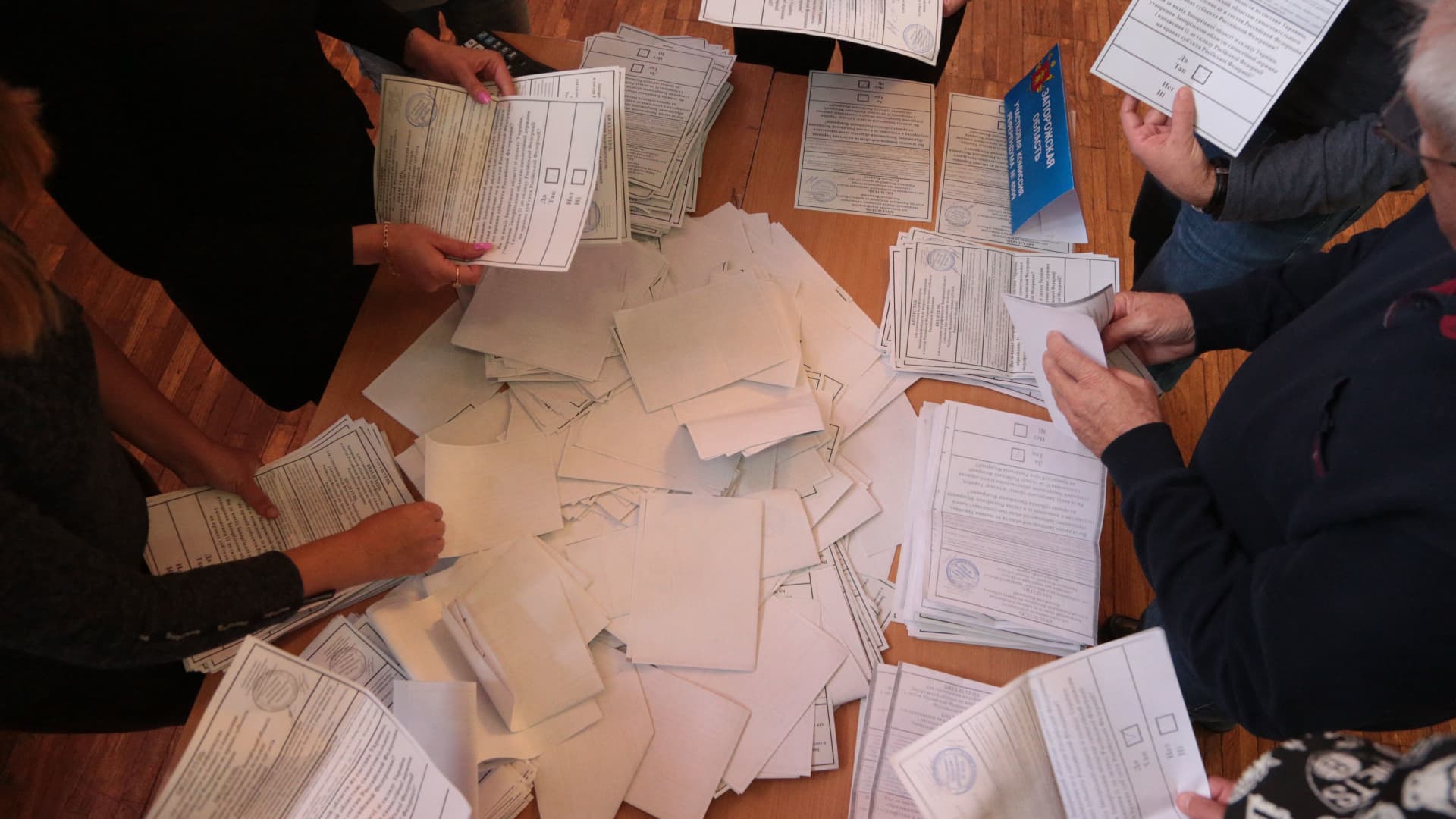
After a series of sham referendums in four Russian-occupied parts of Ukraine, the results are out. Unsurprisingly, the results — widely seen as rigged, with a multitude of irregular voting practices reported — show a resounding majority voted to join Russia.
Amid widespread reports of coercive and illegal voting practices, electoral officials went door to door with portable ballot boxes to collect votes from residents living in the occupied Kherson and Zaporizhzhia regions in the south, and self-proclaimed, pro-Russian "republics" in Donetsk and Luhansk in the east. Polling stations were open only yesterday, the last day of voting.
The results came in last night from Russian-installed officials in the various regions, with Russian news agency Tass reporting the results.
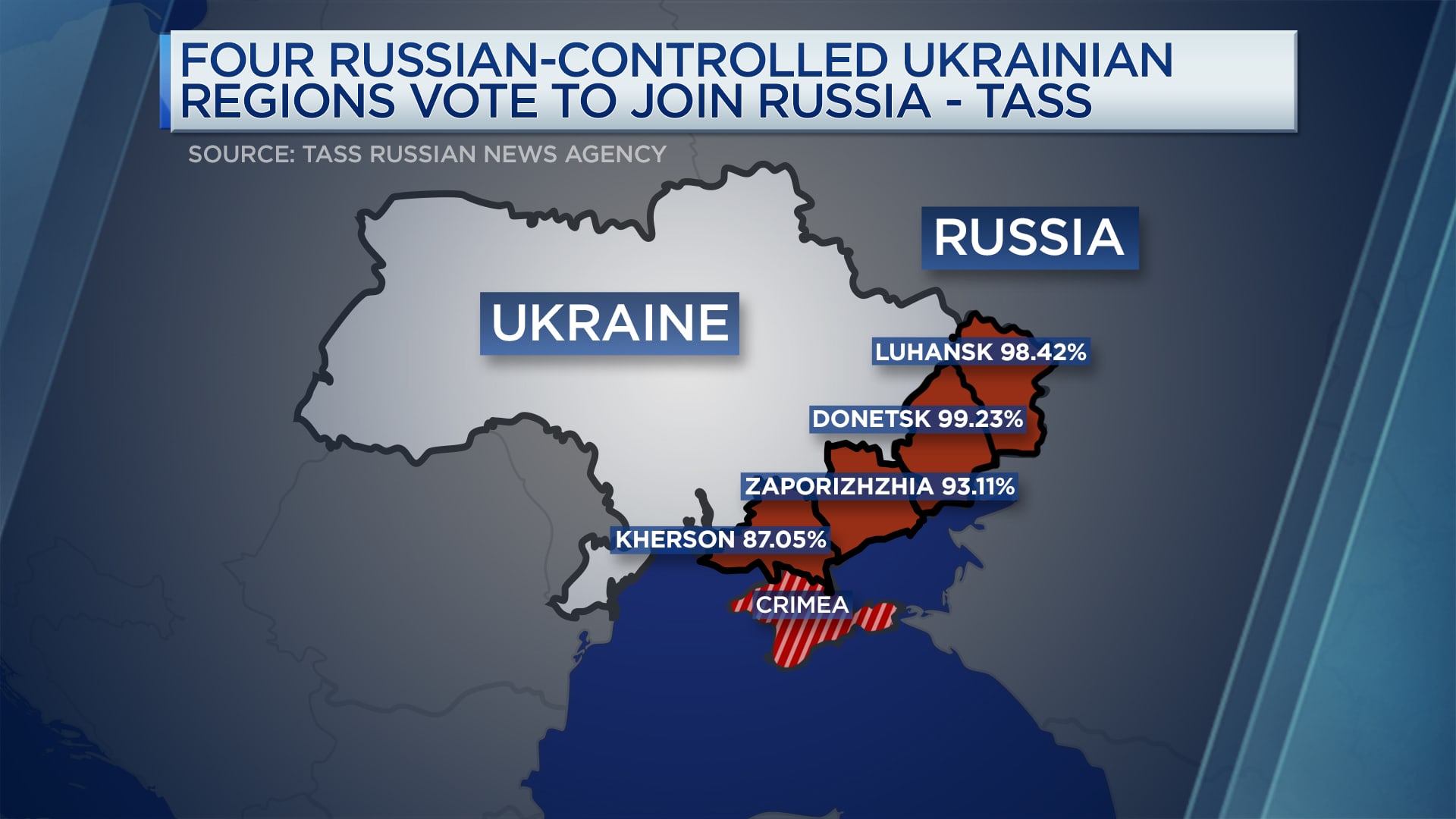
Ukraine and its Western allies have denounced the so-called referendums and said they will not recognize the results.
It's widely expected that Russian President Vladimir Putin will announce Friday that the occupied regions are being annexed and becoming a part of the Russian Federation.
There are widespread fears that the votes, and annexation, are designed to give Moscow a pretext to resort to nuclear weapons, to "defend" what it will claim is its territory and in a bid to win the war against Ukraine.
— Holly Ellyatt
Blinken says initial reports of damage to Nord Stream pipeline could be sabotage

U.S. Secretary of State Antony Blinken said that initial reports of apparent damage to the Nord Stream pipeline indicate it may be the result of sabotage.
"These are initial reports and we haven't confirmed that yet," Blinken told reporters at the State Department.
"Now, my understanding is the leaks will not have a significant impact on Europe's energy resilience. And what's critical is that we are working day in and day out both on a short-term basis and a long-term basis to address energy security for Europe and for that matter around the world," Blinken added.
European officials, meanwhile, are investigating the unexplained leaks affecting both the Nord Stream 1 and 2 pipelines that bring natural gas from Russia to Europe via the Baltic Sea.
— Amanda Macias
Use of nuclear weapons is 'absolutely unacceptable,' NATO chief says

NATO Secretary General Jens Stoltenberg said that the alliance is taking Russia's rhetoric and threats of using a nuclear weapon in Ukraine very seriously.
"Any use of nuclear weapons is absolutely unacceptable," Stoltenberg said in his opening remarks before the European Parliament.
"It will change the nature of the conflict," he said, adding that the NATO alliance, as well as the European Union, will impose severe consequences on Russia if it uses a nuclear weapon.
The Kremlin has previously said that it has a "right" to use nuclear weapons if its territory is threatened.
— Amanda Macias
CIA reportedly warned Berlin about possible attacks on gas pipelines
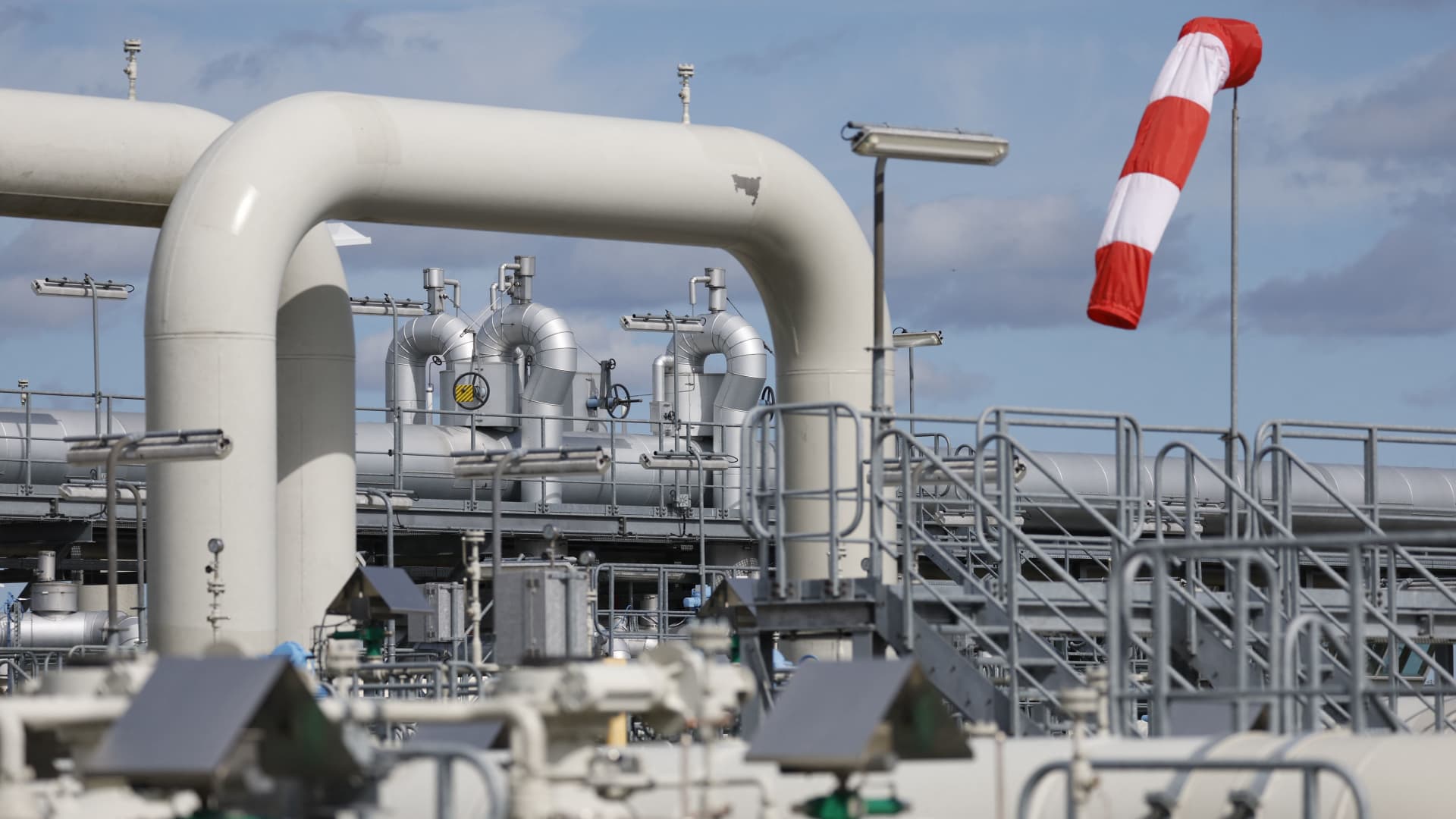
The U.S. Central Intelligence Agency had weeks ago warned Germany about possible attacks on gas pipelines in the Baltic Sea, German magazine Spiegel said after gas leaks in Russia pipelines to Germany were reported.
The German government received the CIA tip in summer, Spiegel reported, citing unnamed sources, adding that Berlin assumes a targeted attack on Nord Stream 1 and 2 pipelines.
A German government spokesperson declined to comment, Spiegel added.
— Reuters
Nord Stream leaks 'a severe safety and environmental hazard,' analysts say
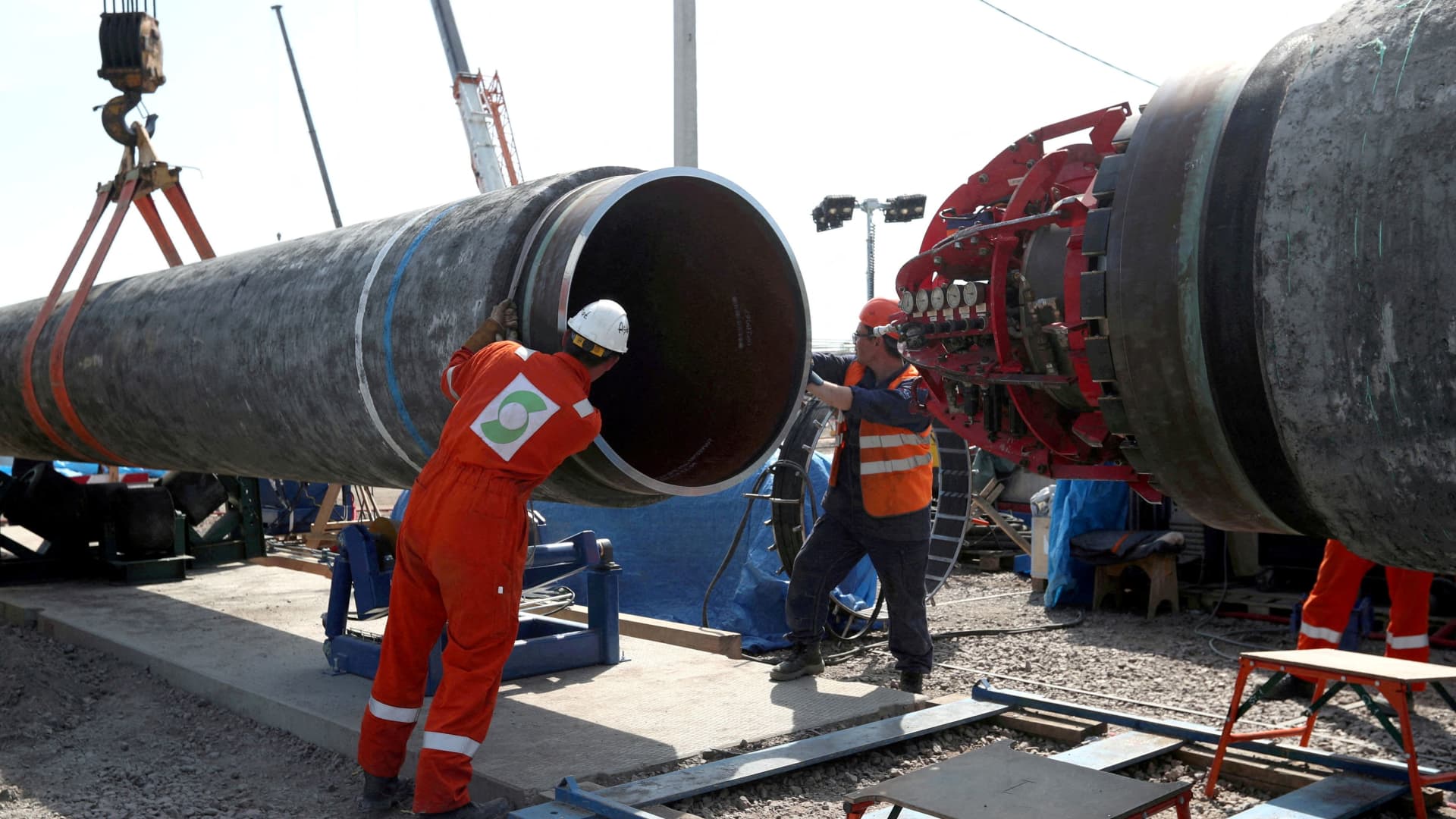
Suspicious leaks reported on the Nord Stream pipelines from Russia to Germany represent a "severe safety and environment hazard," according to experts at the Eurasia Group.
Nord Stream operator Nord Stream AG reported Tuesday that both the Nord Stream 1 and 2 pipelines have sustained "unprecedented" damage via three known leaks, adding it was impossible to estimate when the gas network system's working capability would be restored.
Danish and Swedish authorities declared a no-shipping zone around the location of the suspected leak in their maritime zones while Denmark raised its power and gas safety alert level.
Henning Gloystein, director of energy, climate and resources and senior analyst Jason Bush, both at Eurasia Group, said in a note Tuesday that while German and Danish authorities said the cause of the leaks was unknown, "unplanned leaks to undersea pipelines are rare as they are designed to avert accidental damage."
"Several EU sources said sabotage seemed likely. Neither pipeline was delivering commercial gas at the time of the leaks, yet given both lines were still pressured and each has the capacity to pipe around 165 million cubic metres of methane-heavy gas per day," they said, adding: "Leaks of this size are a severe safety and environmental hazard, especially should Russia not stop pumping gas into the system."
The Nord Stream 1 and 2 pipelines have centered heavily in the breakdown of relations between Europe and Russia because of the war in Ukraine. The new Nord Stream 2 pipeline had not even opened when the German government refused to certify it for commercial operations after Moscow’s invasion of Ukraine.
Meanwhile, the functional Nord Stream 1 pipeline is currently not being used to deliver Russian gas to Europe after Gazprom, the Russian gas giant, said there was a technical fault with a turbine that could not be fixed due to Western sanctions.
The latest report of leaks make it even less likely that gas supplies to Europe will resume before the winter, analysts now say.
"Depending on the scale of the damage, the leaks could even mean a permanent closure of both lines," Eurasia Group said.
Gazprom declined to comment when approached by Reuters.






